Hookworm
(2.5%-4.5%)
Parasite prevalence
In dogs, three of the most frequently diagnosed intestinal parasites are3:
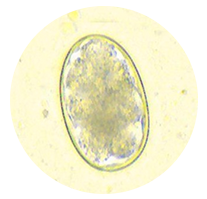
(2.5%-4.5%)
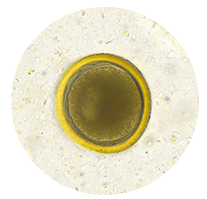
(1.8%-5.0%)
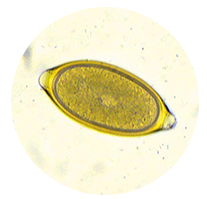
(0.8%-1.2%)
High definition images are from VETSCAN IMAGYSTTM.
In cats, two of the most frequently diagnosed intestinal parasites are4:
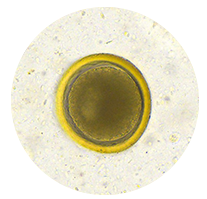
(4.62%)
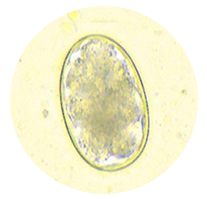
(0.72%)
High definition images are from VETSCAN IMAGYSTTM.
Testing guidelines
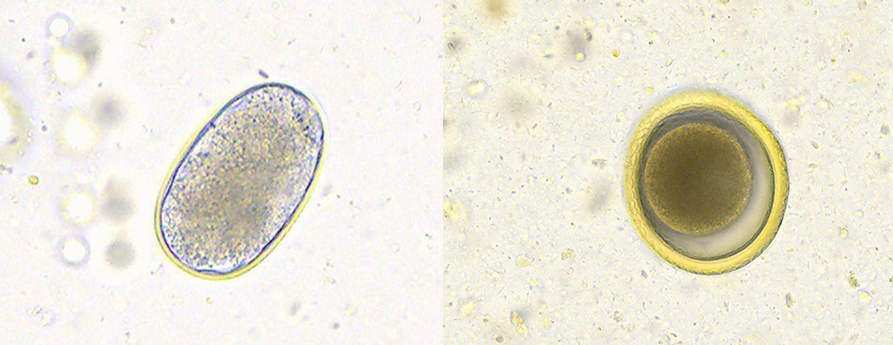
High definition images are from VETSCAN IMAGYST.
Current shortcomings

Level of staff training

Time spent practicing, preparing and reading faecal results

Truncated time preparing the sample or reading results due to other responsibilities in the practice
by passive faecal flotation examinations done in private practice due to technician error or limitations of the passive flotation technique10
References: 1. Jimenez Castro PD, Howell SB, Schaefer JJ, et al. Multiple drug resistance in the canine hookworm Ancylostoma caninum: an emerging threat? Parasites Vectors. 2019;12(1):576. doi:10.1186/s13071-019-3828-6.
2. Traversa D. Pet roundworms and hookworms: a continuing need for global worming. Parasites Vectors. 2012;5:91. doi:10.1186/1756-3305-5-91.
3. J, Carey T. Seasonality and changing prevalence of common canine gastrointestinal nematodes in the USA. Parasites Vectors. 2019;12:430. doi: 10.1186/s13071-019-3701-7.
4. General guidelines. Companion Animal Parasite Council. Updated March 1, 2016. Accessed July 15, 2020. https://capcvet.org/guidelines/general-guidelines/.
5. Parasite Prevalence Maps. Companion Animal Parasite Council. Updated July 16, 2020. Accessed July 16, 2020. https://capcvet.org/maps/.
6. Bowman DD, Montgomery SP, Zajac AM, et al. Hookworms of dogs and cats as agents of cutaneous larva migrans. Trends Parasitol. 2010;26(4):162-167. doi:10.1016/j.pt.2010.01.005.
7. Overgaauw PA, van Knapen F. Veterinary and public health aspects of Toxocara spp. Vet Parasitol. 2013;193(4):398-403. doi:10.1016/j.vetpar.2012.12.035.
8. Little SE. Helping protect the bond between clients and pets through parasite control. DVM360. Published May 2, 2019. Accessed June 1, 2020. https://www.dvm360.com/view/helping-protect-bond-between-veterinary-clients-and-pets-through-parasite-control.
9. Nagamori Y, Sedlak RH, DeRosa A, et al. Evaluation of the VETSCAN IMAGYST: an in-clinic canine and feline fecal parasite detection system integrated with a deep learning algorithm. Parasites Vectors. 2020;13:346. doi:10.1186/s13071-020-04215-x.
10. Gates MC, Nolan TJ. Comparison of passive fecal flotation run by veterinary students to zinc-sulfate centrifugation flotation run in a diagnostic parasitology laboratory. J Parasitol. 2009;95(5):1213-1214. doi:10.1645/GE-2058.1.
All trademarks are the property of Zoetis Services LLC or a related company or a licensor unless otherwise noted. © 2020 Zoetis Services LLC. All rights reserved. VTS-00181